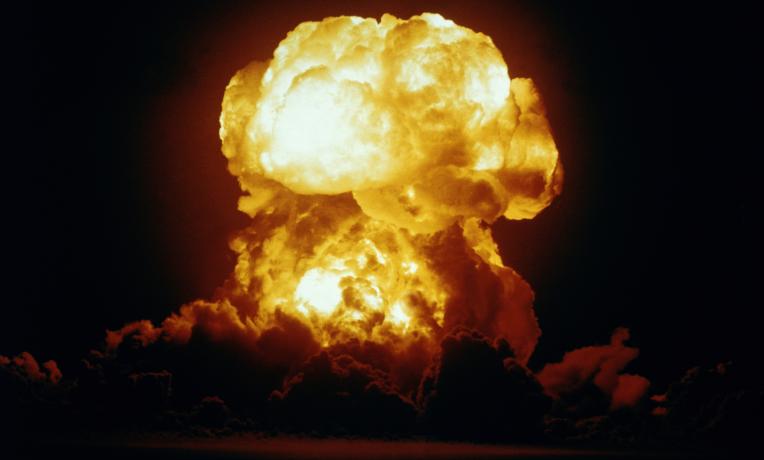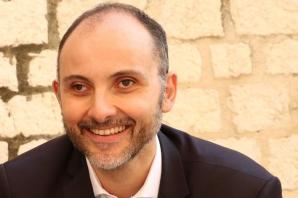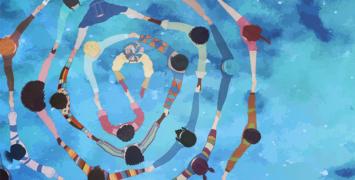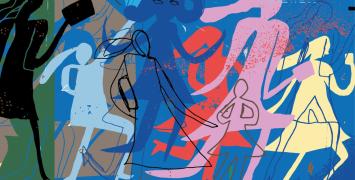Scoping possibility in a nuclear world

How is the scope of available nuclear weapon choices decided? ERC grantee Benoît Pelopidas explores the challenges of imagining the possibility of nuclear war and unwanted nuclear explosions, both in international policy and in people’s minds. Through public opinion research, he documented popular knowledge about nuclear weapons. Using untapped primary sources, he demonstrates the role of luck in avoiding nuclear catastrophes. His research elaborates nuclear vulnerability beyond its material dimension, providing lessons for other existential problems such as climate change.
The NUCLEAR project provides the first in-depth research of the grounds on which the scope of publicly acceptable nuclear weapons choices has been based. Although a much lesser number than at the height of the Cold War in the 1980s, there are still around 13.000 nuclear weapons in the world today. “In 2016, when I started to think about this project, the existing nuclear states were on the verge of making decisions about extending the life of their arsenal for half a century into the future”, says principal investigator Benoît Pelopidas. “Those decisions were going to be massively consequential for several generations. Yet that was not making major news.”
For Pelopidas, the scholarly understanding of key issues about nuclear weapons is inadequate. “In political science, a common concept is sovereignty, understood as an ability to be in charge of the protection of one’s territory and population”, he explains. “This ability is simply obsolete in an era of ballistic missiles against which there is no protection and in which the possibility of accidents remains.” Similarly, he says, security studies excessively focuses on proliferation (the global spread of nuclear weapons). “In order to counter this, I reassessed proliferation since the Cold War according to new criteria and demonstrated that it is slower than ever before, contrary to most experts’ claims. All existing nuclear-weapons states have reached that status, not out of an inherent and irrepressible desire to get to that point, but because all of them have received the help of at least one nuclear-armed state and permanent member of the UN Security council.”
Citizens’ opinions
An important data source for NUCLEAR is a large-scale survey conducted in nine European countries. According to Pelopidas: “Studies of democracy and studies on nuclear weapons have largely operated in mutual neglect since the Cold War. As a result, the possible effects of the institutionalization of nuclear weapons on democratic governance remain unknown. Reconnecting these fields has required articulating the commitments that the nuclear state assume its citizens have made. On that basis, one can survey citizens in a meaningful way about their attitudes and not simply ask them whether they support the existing policy.”
A fundamental challenge of making sense of nuclear realities is imagining the possibility of nuclear war and acting accordingly, says Pelopidas. “Most of the debate is set as though material realities are limiting available choices. However, the way one assumes the future will look like is massively constraining to the way they set their options.”
Nuclear vulnerability
Visual popular culture is, according to Pelopidas, an important mediation to get to that awareness of nuclear vulnerability. “During the Cold War, popular culture placed us viewers in worlds in which believing in the possibility of nuclear catastrophe was accepted and was normal. This changed in the early 90s. If nuclear weapons remain in popular culture, it is mostly as past events, or disconnected from human origins, like in the Terminator or the Matrix, where machines, not humans, would start a nuclear war. Nuclear weapons even became a salvation device. Some movies depict a comet on collision course with earth, and the only way it can be destroyed is by firing nuclear weapons to it.“
Interviews with planners and builders of nuclear arsenals about how they make sense of the possibility of nuclear disasters also reflect such thinking. Pelopidas: “Interestingly, most of them ended up saying: we know that those disasters can happen, but it is hard for us to believe that they ever will. For me, that was a crucial part of the puzzle: to nuclear vulnerability in material terms, I add what I call epistemic vulnerability. That is the temptation to believe in complete control over the weapons, and perfect knowledge about them, even though we do not have adequate evidence to prove that level of knowledge and control.”
Accounting for the role of luck
Organizations that manage nuclear stockpiles tend to rely on such narratives of total control. Nevertheless, historical counterexamples undermine that message. “Since the late 1960s, prominent policymakers and members of the military have stated that luck played a crucial role in the avoidance of past nuclear disasters”, says Pelopidas. “But so far, we did not have a good way of assessing the role of luck. We were stuck with essentially unwarranted claims; we would pretend that luck did not play a role because this role could not be measured.”
The NUCLEAR project has created a methodology that makes cases of luck distinguishable from cases of control, and has empirically documented several such cases with primary sources. Pelopidas explains: “These include untapped sources on cases of near nuclear explosions in which luck can be demonstrated to have played a role. Our findings show the inaccuracy of claims that unwanted nuclear explosions were so far avoided thanks to perfect control and that relying on nuclear weapons for security for the next 70 years is simply a repetition of what we have already done.”
Climate change
“ERC funding was crucial to do this work”, says Pelopidas. “It allowed the independence and interdisciplinary enquiries without which citizens and their representatives would not have known about the fallacies of accepted knowledge on issues as important as the absence of consensus on nuclear weapons policy in France and the UK and the role of luck in unwanted nuclear explosions.”
A future avenue of research includes connecting nuclear studies with scholarship on other existential threats, notably climate change. “Climate change models are important for nuclear science, for instance for modelling nuclear winter”, says Pelopidas. “Also, in both cases, there are pledges of radical change. Regarding climate change, this is about mitigation and carbon dioxide emission control; concerning nuclear weapons, it is about nuclear disarmament. Yet there are massive gaps between those pledges and the accomplishments; in both cases, there are common claims that say it was impossible to have done better. With the work we did on luck and on the counterfactual analysis of the nuclear age, we can now assess whether it would have been possible to do better. Instead of assuming that we are in the best possible nuclear world so far, what else could have been done?”
Biography
Benoît Pelopidas is Associate Professor at Sciences Po in Paris and founding director of the Nuclear Knowledges program. From 2016 to 2019, he held the chair of excellence in security studies at Centre de Recherches Internationales (CERI). He is also an affiliate of the Center for International Security and Cooperation (CISAC) at Stanford University and has been a visiting fellow at Princeton University. In recent years, he has engaged with policymakers in the US and in Europe as well as civil society groups to advocate innovative nuclear disarmament and arms control policies.






